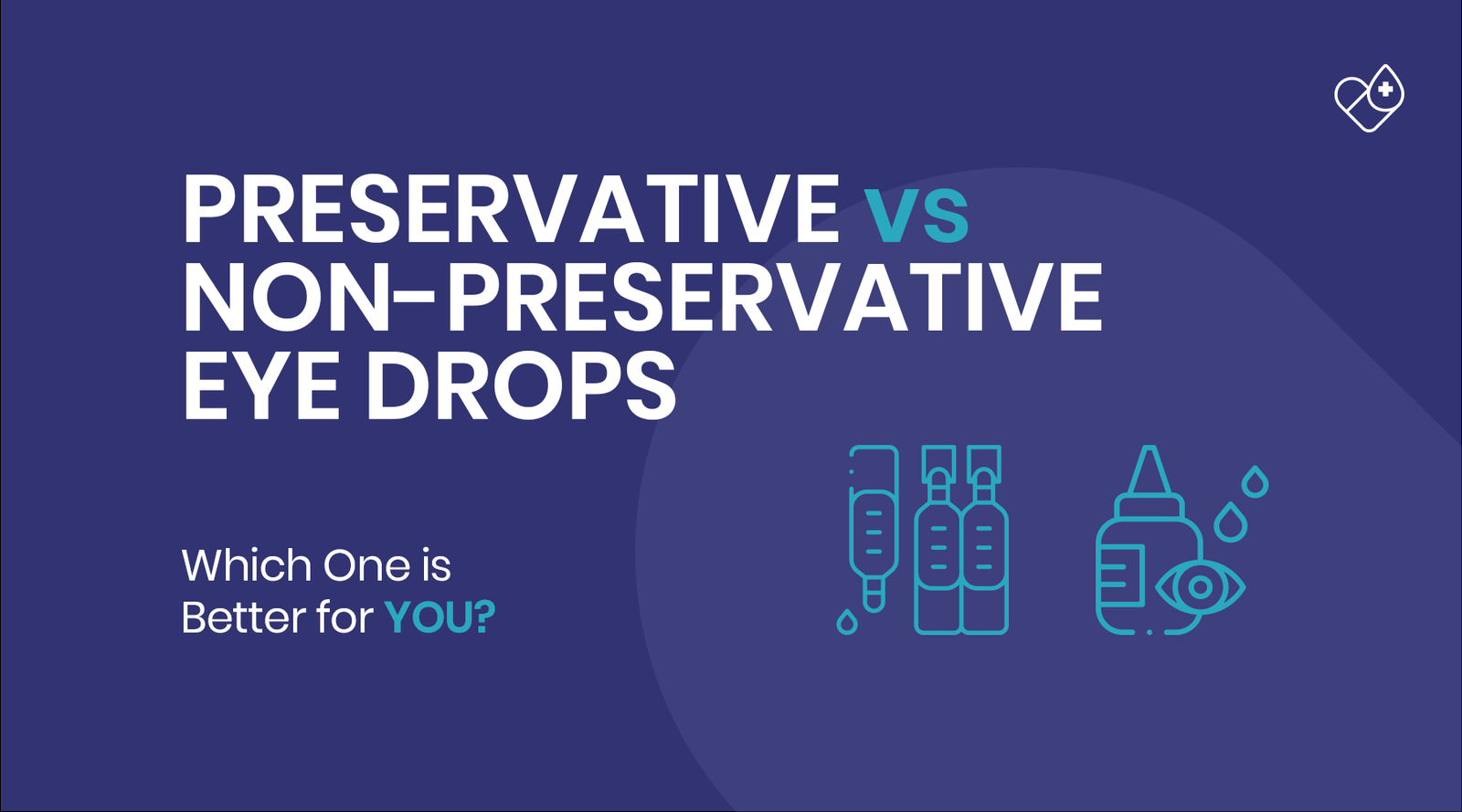What’s the Difference between Preservative and Non-Preservative Eye Drops?
Which One is Better for You?
Having dry or irritated eyes could be uncomfortable and sometimes even painful. Fortunately, eye drops are an effective solution that can provide instant relief. However, when choosing eye drops, many often wonder whether to buy the ones with preservatives or those without. On one hand, preservatives help prevent bacterial growth, but they may also cause irritation and further eye discomfort. On the other hand, preservative-free eye drops minimize irritation, but they often come with a shorter shelf-life and higher cost. In this article, we'll discuss the pros and cons of using both types of eye drops to help you pick which ones are better for you.

Preservative-Free Eye Drops
Preservative-free eye drops are increasingly popular, especially among people with highly sensitized eyes. Preservatives like benzalkonium chloride (BAK) have been known to cause eye irritation, inflammation, and dryness in some people. Consequently, if you have sensitive eyes or prefer using natural remedies, preservative-free eye drops may be a great option for you. What's more, without preservatives, these types of eye drops can also be used more frequently because there's no risk of toxicity from excessive use. Preservative-free eye drops come in two forms: multi-dose bottles and individual vials. While preservative-free eye drops may be more expensive than their preserved counterparts, they generally have a shorter shelf-life of approximately three months, which may be worth the cost for those who want to avoid irritation caused by preservatives.
 Preserved Eye Drops
Preserved Eye Drops
Although preserved eye drops may contain chemicals that can irritate, they are still a popular choice among many people. Preservatives help prevent bacterial growth in multi-use bottles, and thus, they are often recommended by ophthalmologists for long-term use. Using a multi-use bottle also saves you the cost of purchasing multiple individual vials of preservative-free eye drops, making preserved eye drops more cost-effective over time. However, depending on the type and concentration of preservatives in the eye drops, they may cause dryness and irritation in some people. In general, when choosing an eye drop containing preservatives, it's essential to consider the type and concentration of the preservative as well as the length of use.
Which One is Best?
There's no simple answer to this question because everyone's needs and preferences are different. If you have severe sensitivities to preservatives or frequently use eye drops, preservative-free eye drops may be a better option for you. On the other hand, if you don't have any issues with preserved eye drops and require long-term use, you can save money and time by using multi-use bottles. Always, we recommend speaking with your optometrist or ophthalmologist before using any type of eye drops, especially if you have had an eye infection, injury, surgery, or other problems. If you don't have an optometrist, you can find one here.
Tips for Using Eye Drops
Regardless of whether you use preserved or preservative-free eye drops, here are some tips to maximize their efficacy and avoid complications.
- Always wash your hands before using eye drops.
- Avoid touching the eye drop nozzle to your eye, as this could cause bacterial infection.
- Discard the eye drops after the expiration date on the bottle.
- Follow the instructions and dosage recommended by your doctor.
- If you experience any irritation, discomfort, or allergic reactions, cease usage immediately and consult your optometrist.
Preserved and preservative-free eye drops each have advantages and disadvantages, making it challenging to decide which one is right for you. Some people prefer preservative-free eye drops because they minimize the risk of irritation caused by preservatives. In contrast, others choose preserved eye drops because of their cost-effectiveness over time. Before purchasing either one, always consult your ophthalmologist to determine what's best for you. Remember to practice good hygiene and follow the instructions recommended by your doctor to make the most of your eye drops and avoid any complications.

